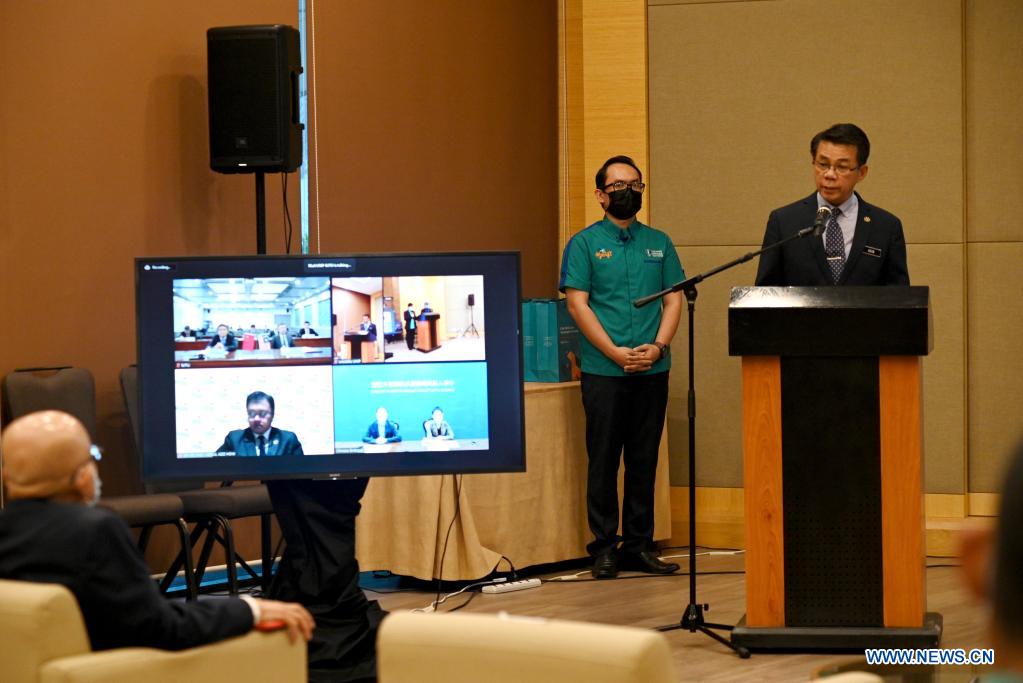Abstract : Beijing Jiaotong University of China and the University of Malaysia Pahang signed an agreement on Wednesday on the offering of dual degree programs related to railway to jointly cultivate Malaysian talents in the field.

Khairul Adib Bin Abd Rahman, director general of Public Service, Malaysia, speaks at the agreement signing ceremony of Beijing Jiaotong University of China and the University of Malaysia Pahang on the offering of dual degree programs related to railway to jointly cultivate Malaysian talents in the field, in Putrajaya, Malaysia, April 28, 2021. (Photo by Chong Voon Chung/Xinhua)
PUTRAJAYA, Malaysia, April 28 (Xinhua) — Beijing Jiaotong University of China and the University of Malaysia Pahang signed an agreement on Wednesday on the offering of dual degree programs related to railway to jointly cultivate Malaysian talents in the field.
According to the Memorandum of Agreement signed between the two universities, three railway related programs of dual bachelor’s degrees will be offered initially, including civil engineering, mechanical/vehicle engineering as well as electrical engineering. The tuition fee would be covered by Malaysia’s Public Service Department.
Students will spend the first two years in the University of Malaysia Pahang before continuing their studies in Beijing Jiaotong University for another two and a half years. Upon graduation, they will be conferred dual degrees by the two universities respectively. Sixty Malaysian students are expected to be enrolled in the first year of the cooperation.
Speaking via video call to the signing ceremony, Wang Jiaqiong, president of Beijing Jiaotong University, said his university has earlier participated in the training program for East Coast Rail Link (ECRL), Malaysia’s mega infrastructure project in cooperation with China, to cultivate railway talents for Malaysia.
With the new cooperation with the University of Malaysia Pahang, Wang said he hopes the two universities could further boost practical cooperation in areas including the education of students, training of teachers, academic exchange and scientific research, in a bid to cultivate more railway talents for Malaysia and to bring benefit to both China and Malaysia.
Khairul Adib Bin Abd Rahman, director general of Public Service, Malaysia, said railway and other public transports would play a critical role in facilitating Malaysia’s effort to revitalize its economy, which was severely hit by the COVID-19 pandemic. He hopes the cooperation between Beijing Jiaotong University of China and the University of Malaysia Pahang could bring tangible results and benefits to more students in the future. Enditem
About Xinhua Silk Road
Xinhua Silk Road (en.imsilkroad.com) is the Belt and Road Initiative (BRI) portal.China’s silk road economic belt and the 21st century maritime silk road website,includes BRI Policy, BRI Trade, BRI Investment, Belt and Road weekly, Know Belt and Road, and the integrated information services for the Belt and Road Initiative (BRI).
Source: Universities of China, Malaysia join hands to cultivate railway talents
Comments
Post a Comment